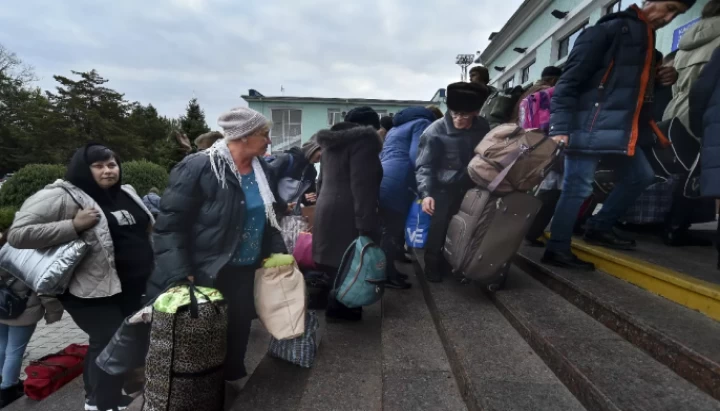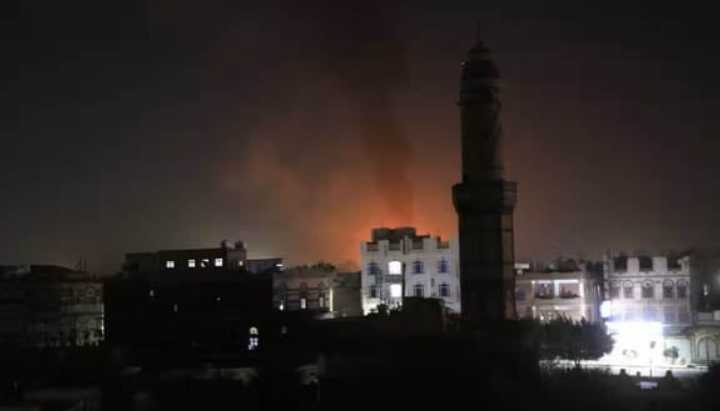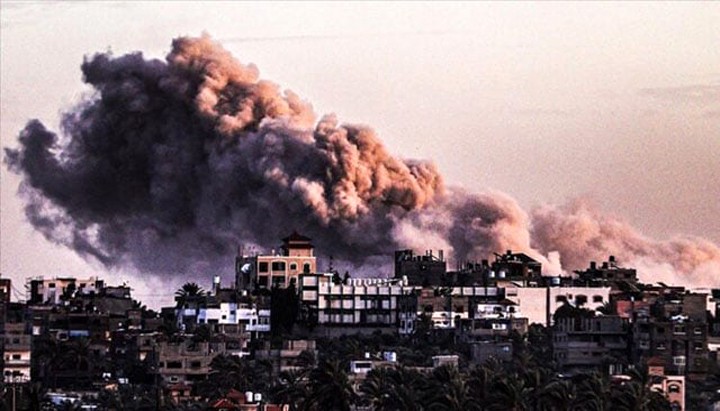Russian-installed
authorities in Ukraine told all residents of the city of Kherson to leave
"immediately" Saturday ahead of an expected advance by Ukrainian
troops waging a counteroffensive to recapture one of the first urban areas Russia
took after invading the country.
In a post on the Telegram messaging service, the pro-Kremlin
regional administration strongly urged civilians to use boat crossings over a
major river to move deeper into Russian-held territory, citing a tense situation
on the front and the threat of shelling and alleged plans for "terror
attacks" by Kyiv.
Kherson has been in Russian hands since the early days of
the nearly 8-month-long war in Ukraine. The city is the capital of a region of
the same name, one of four that Russian President Vladimir Putin illegally
annexed last month and put under Russian martial law on Thursday.
On Friday, Ukrainian forces bombarded Russian positions
across the province, targeting pro-Kremlin forces' resupply routes across the
Dnieper River and preparing for a final push to reclaim the city.
The Ukrainian military has reclaimed broad areas in the
north of the region since launching a counteroffensive in late August. It
reported new successes Saturday, saying that Russian troops were forced to
retreat from the villages of Charivne and Chkalove in the Beryslav district.
Russian-installed officials were reported as trying
desperately to turn Kherson city — a prime objective for both sides because of
its key industries and ports — into a fortress while attempting to relocate
tens of thousands of residents.
The Kremlin poured as many as 2,000 draftees into the
surrounding region to replenish losses and strengthen front-line units,
according to the Ukrainian army's general staff.
The wide Dnieper River figures as a major factor in the
fighting, making it hard for Russia to supply its troops defending the city of
Kherson and nearby areas on the west bank after relentless Ukrainian strikes
rendered the main crossings unusable.
Taking control of Kherson has allowed Russia to resume fresh
water supplies from the Dnieper to Crimea, which were cut by Ukraine after
Moscow's annexation of the Black Sea peninsula. A big hydroelectric power plant
upstream from Kherson city is a key source of energy for the southern region.
Ukraine and Russia accused each other of trying to blow it up to flood the
mostly flat region.
Kherson's Kremlin-backed authorities previously announced
plans to evacuate all Russia-appointed officials and as many as 60,000
civilians across the river, in what local leader Vladimir Saldo said would be
an "organized, gradual displacement."
Another Russia-installed official estimated Saturday that
around 25,000 people from across the region had made their way over the
Dnieper. In a Telegram post, Kirill Stremousov claimed that civilians were
relocating willingly.
"People are actively moving because today the priority
is life. We do not drag anyone anywhere," he said, adding that some
residents could be waiting for the Ukrainian army to reclaim the city.
Ukrainian and Western officials have expressed concern about
potential forced transfers of residents to Russia or Russian-occupied
territory.
Ukrainian officials urged Kherson residents to resist
attempts to relocate them, with one local official alleging that Moscow wanted
to take civilians hostage and use them as human shields.
Elsewhere in the invaded country, hundreds of thousands of
people in central and western Ukraine woke up on Saturday to power outages and
periodic bursts of gunfire. In its latest war tactic, Russia has intensified
strikes on power stations, water supply systems and other key infrastructure
across the country.
Ukraine's air force said in a statement Saturday that Russia
had launched "a massive missile attack" targeting "critical
infrastructure," adding that it had downed 18 out of 33 cruise missiles
launched from the air and sea.
Ukrainian President Volodymyr Zelenskyy later said that
Russian launched 36 missiles, most of which were shot down.
"Those treacherous blows on critically important
facilities are characteristic tactics of terrorists," Zelenskyy said.
"The world can and must stop this terror."
Air raid sirens blared across Ukraine twice by early
afternoon, sending residents scurrying into shelters as Ukrainian air defense
tried to shoot down explosive drones and incoming missiles.
"Several rockets" targeting Ukraine's capital were
shot down Saturday morning, Kyiv Mayor Vitali Klitschko said on the Telegram
messaging service.
The president's office said in its morning update that five
suicide drones were downed in the central Cherkasy region southeast of Kyiv.
Similar reports came from the governors of six western and central provinces,
as well as of the southern Odesa region on the Black Sea.
Ukraine's top diplomat said the day's attacks proved Ukraine
needed new Western-reinforced air defense systems "without a minute of
delay."
"Air defense saves lives," Foreign Minister Dmytro
Kuleba wrote on Twitter.
Kyrylo Tymoshenko, the deputy head of Ukraine's presidential
office, said on Telegram that almost 1.4 million households lost power as a
result of the strikes. He said some 672,000 homes in the western Khmelnytskyi
region were affected and another 242,000 suffered outages in the Cherkasy
region.
Most of the western city of Khmelnytskyi, which straddles
the Bug River and had a pre-war population of 275,000, was left with no
electricity, shortly after local media reported several loud explosions.
In a social media post on Saturday, the city council urged
local residents to store water "in case it's also gone within an
hour."
The mayor of Lutsk, a city of 215,000 in far western
Ukraine, made a similar appeal, saying that power in the city was partially
knocked out after Russian missiles slammed into local energy facilities and
damaged one power plant beyond repair.
The central city of Uman, a key pilgrimage center for
Hasidic Jews with about 100,000 residents before the war, also was plunged into
darkness after a rocket hit a nearby power plant.
Ukraine's state energy company, Ukrenergo, responded to the
strikes by announcing that rolling blackouts would be imposed in Kyiv and 10
Ukrainian regions to stabilize the situation.
In a Facebook post on Saturday, the company accused Russia
of attacking "energy facilities within the principal networks of the
western regions of Ukraine." It claimed the scale of destruction was
comparable to the fallout earlier this month from Moscow's first coordinated
attack on the Ukrainian energy grid.
Both Ukrenergo and officials in Kyiv have urged Ukrainians
to conserve energy. Earlier this week, Zelenskyy called on consumers to curb
their power use between 7 a.m. and 11 a.m. and to avoid using energy-guzzling
appliances such as electric heaters.
Zelenskyy said earlier in the week that 30% of Ukraine's
power stations have been destroyed since Russia launched the first wave of
targeted infrastructure strikes on Oct. 10.
In a separate development, Russian officials said two people
were killed and 12 others were wounded by Ukrainian shelling of the town of
Shebekino in the Belgorod region near the border.
– AP/UNB








